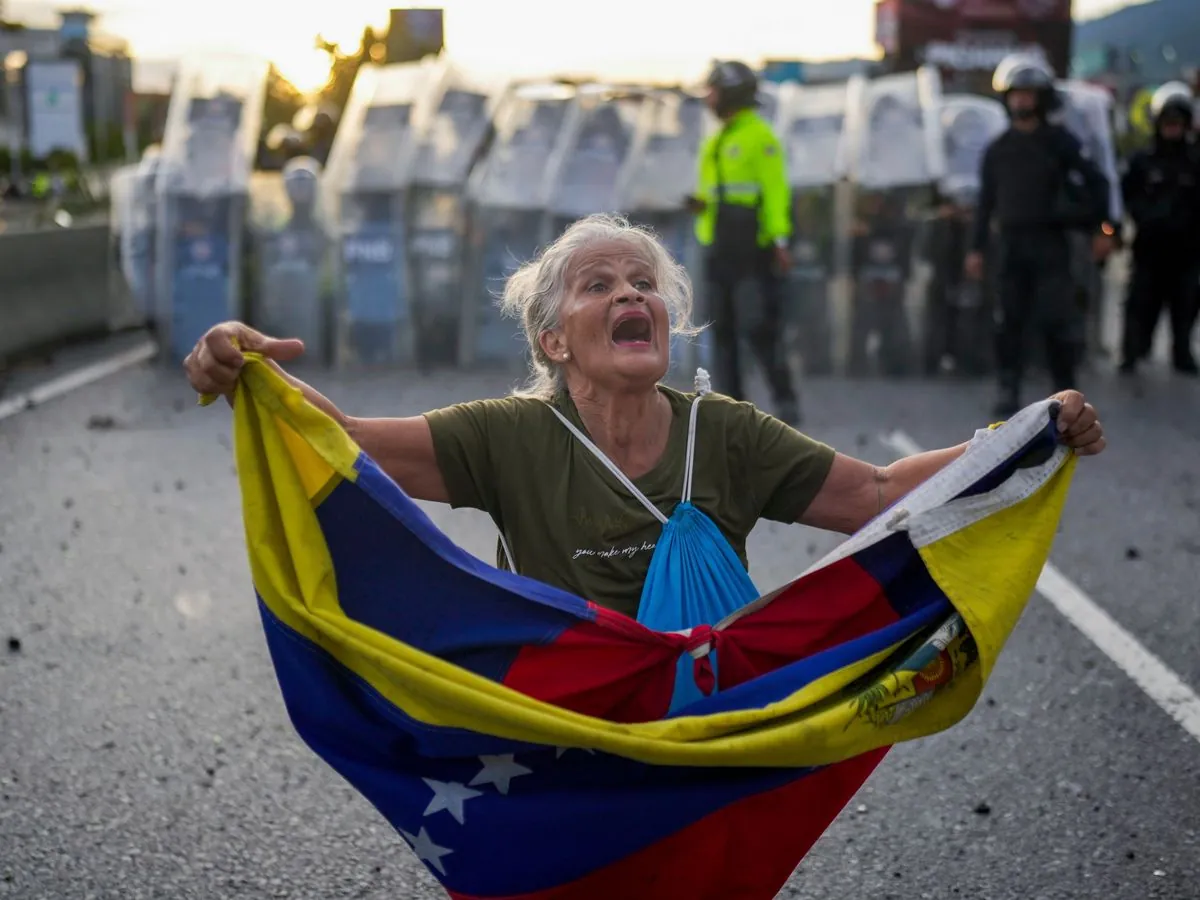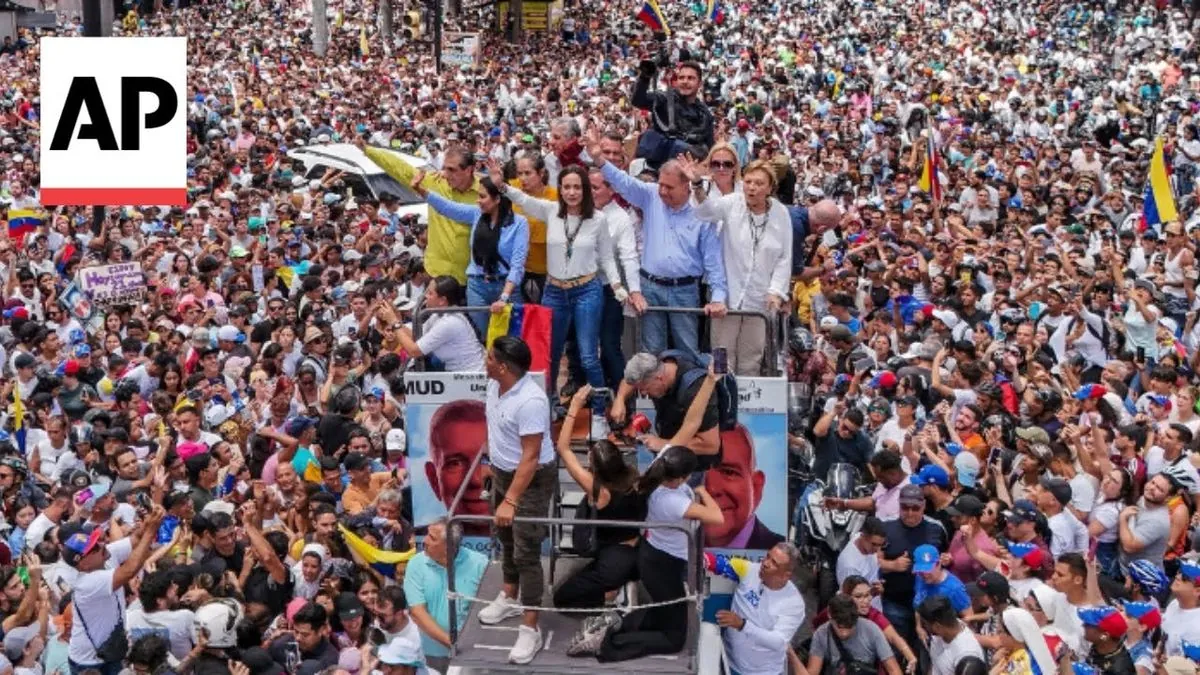Venezuela's Contested Election Sparks Regional Diplomatic Crisis
Venezuela's disputed election results lead to regional tensions and diplomatic expulsions. Brazil mediates as protests erupt and concerns grow over opposition figures' safety.

Venezuela's recent presidential election has ignited a regional diplomatic crisis, with Nicolás Maduro declared the winner amidst accusations of fraud. The electoral council announced Maduro's victory with 51% of the vote on July 28, 2024, sparking controversy and international concern.
Opposition candidate Edmundo Gonzalez claims to have received more than double the support of the incumbent president, based on their tally of approximately 90% of the votes. This discrepancy has led to widespread protests and violence across Venezuela, a country already grappling with significant economic challenges.

Venezuela, once the wealthiest nation in South America, has been experiencing a severe economic crisis since 2013. The country boasts the world's largest proven oil reserves but has faced hyperinflation since 2016 and international sanctions since 2015. These factors have contributed to a complex socio-economic landscape, exacerbating tensions surrounding the election.
In response to criticism of the electoral process, Venezuela has expelled diplomats from Argentina, Chile, Costa Rica, Panama, the Dominican Republic, and Uruguay. The government in Caracas has also severed relations with Peru after Lima recognized Gonzalez as Venezuela's elected president.
Luiz Inácio Lula da Silva of Brazil, Andrés Manuel López Obrador of Mexico, and Gustavo Petro of Colombia are expected to discuss the situation in Venezuela on August 1, 2024. Brazil has taken on a mediating role, assuming administration of the Argentine and Peruvian embassies in Venezuela following the diplomatic expulsions.
"I greatly appreciate Brazil's willingness to take charge of the custody of the embassy. I have no doubt that we will soon reopen our embassy in a free and democratic Venezuela."
A key concern is the safety of six Venezuelan opposition figures who sought asylum in the Argentine embassy. These individuals, including advisors to opposition leader Maria Corina Machado, are now under Brazil's protection. Machado, who was blocked from being a candidate despite leading in polls, has faced allegations of misconduct, which she denies.
The international community, including the United States, is urging Maduro's government to release comprehensive vote totals. The Carter Center, a U.S.-based election monitor group, has stated it cannot verify or corroborate Venezuela's election results.
As tensions escalate, Venezuela faces the challenge of maintaining stability while addressing the concerns of its citizens and the international community. The country's complex history, including the Bolivarian Revolution led by Hugo Chávez beginning in 1999, continues to shape its political landscape.
Venezuela's future remains uncertain as it navigates this electoral dispute amidst ongoing economic struggles and diplomatic tensions. The international community watches closely, hoping for a peaceful resolution to the crisis in this resource-rich nation known for its diverse ecosystem and cultural achievements.


































